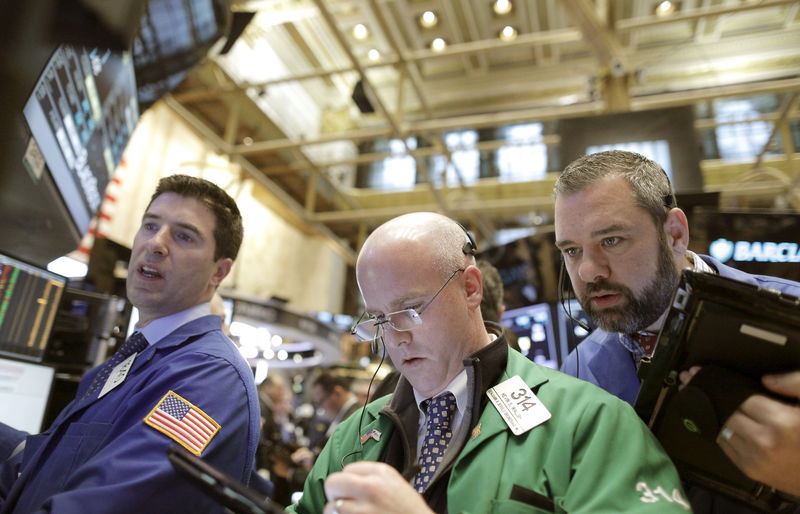By Herbert Lash
NEW YORK (Reuters) - Solid economic data lifted government debt yields on Thursday while global equity markets edged slightly higher after U.S. President Donald Trump said trade talks with China are "moving right along."
Treasury yields rose on reports indicating a resilient U.S. economy, including a fall in weekly jobless claims and a decline in the U.S. trade deficit, which suggested trade could contribute to growth in the fourth quarter.
Gold closed little changed as mixed messages on the U.S-China trade negotiations stirred uncertainty. Trump had said talks with China were going "very well" during his London visit for the NATO summit while warning earlier that a deal may come only after U.S. elections in November 2020.
But Trump struck an upbeat tone on Thursday even as Chinese officials held fast to their line that existing tariffs must come off as part of an interim deal to de-escalate the 17-month trade war between the two powers.
Markets will toggle up and down until Dec. 15, when the United States is scheduled to implement a new round of tariffs on China, said Matthew Kea tor, managing partner in the Keator Group, a wealth management firm in Lenox, Massachusetts.
U.S. tariffs on about $156 billion of Chinese imports are set to begin in 10 days.
"The wild card remains what President Trump is going to do about leaving those tariffs in place or not implementing them," said Michael James, managing director of equity trading at Wedbush Securities in Los Angeles.
MSCI's gauge of stocks across the globe (MIWD00000PUS) rose 0.19%, lifted by gains overnight in Asia and by Apple (NASDAQ:AAPL)
The pan-regional STOXX 600 index (STOXX) closed down 0.13%.
On Wall Street, the Dow Jones Industrial Average (DJI) rose 28.01 points, or 0.1%, to 27,677.79. The S&P 500 (SPX) gained 4.67 points, or 0.15%, to 3,117.43 and the Nasdaq Composite (IXIC) added 4.03 points, or 0.05%, to 8,570.70.
U.S. economic reports countered data earlier this week that showed manufacturing activity contracted for a fourth straight month in November, a slowdown in services sector growth and a drop in construction spending in October.
The dollar fell for a fifth straight session as some traders worried about the week's economic data. A stronger euro and strengthening British pound also hurt the greenback.
Sterling has gained more than 1.5% this week against the dollar on views the ruling Conservative Party will likely win a majority in next week's election and end 3-1/2 years of Brexit-related uncertainty by taking Britain out of the European Union.
The dollar index (DXY) fell 0.28%, with the euro (EUR=) up 0.26% to $1.1105. The Japanese yen strengthened 0.09% versus the greenback at 108.79 per dollar.
Sterling
Investors remained focused on how much damage the trade war is causing around the world and whether the signs of economic stabilization in the euro zone will continue.
German industrial orders fell unexpectedly and retail sales in the euro zone fell at their sharpest rate this year in October. Overall, the euro zone economy grew at a modest pace in the third quarter.
Germany's blue-chip index (GDAXI), home to major industrial exporters, fell 0.48%.
German 10-year bond yields rose slightly more than 2 basis points to -0.2930 percent (DE10YT=RR). Other core government bond yields also moved between 1 and 2 bps (BE10YT=RR).
The benchmark 10-year U.S. Treasury note (US10YT=RR) fell 8/32 in price to yield 1.8068%.
Oil prices rose on expectations the Organization of the Petroleum Exporting Countries and allied oil producers will deepen production cuts in an effort to prop up prices and prevent a glut next year.
Brent crude (LCOc1) futures rose 39 cents to settle at $63.39 a barrel. U.S. crude
U.S. gold futures
For a graphic on HSBC chart on Asia earnings Dec 5, 2019:

https://fingfx.thomsonreuters.com/gfx/mkt/12/9548/9460/HSBC%20chart%20on%20Asia%20earnings%20Dec%205,%202019.jpg